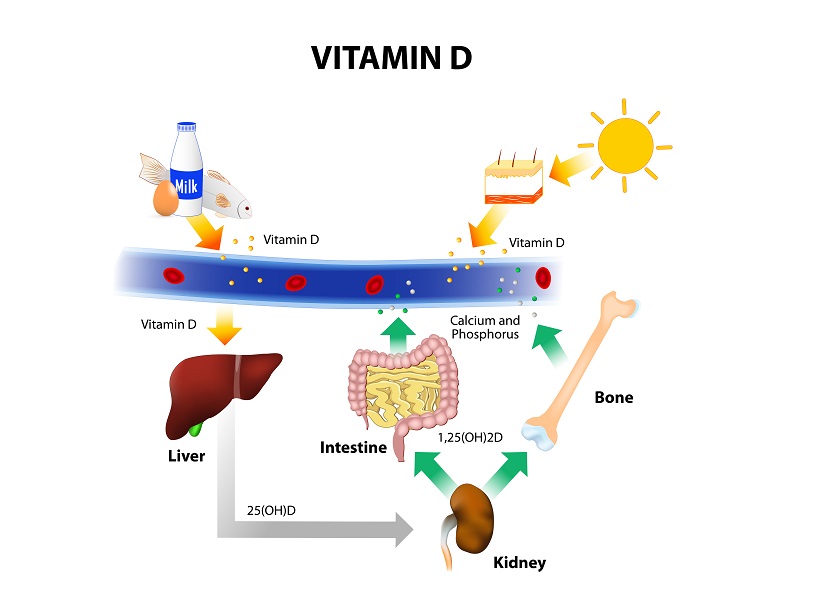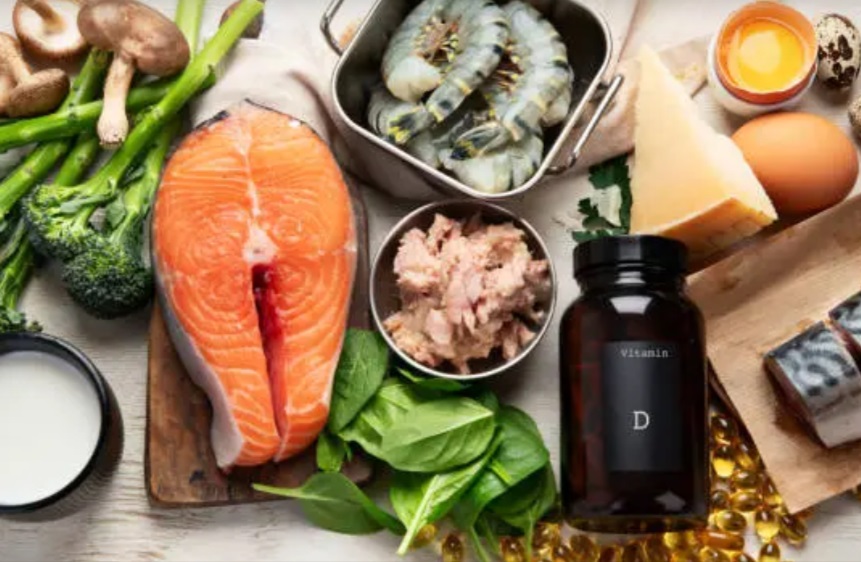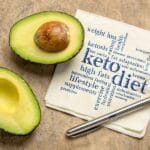The ketogenic diet, or keto for short, has gained immense popularity for its potential benefits in weight loss, improved mental clarity, and overall health. While many people focus on macronutrients like fats, proteins, and carbohydrates when starting a keto diet, it’s equally important not to overlook essential vitamins and minerals. In this Vitamin D and Keto article, we will discuss why It’s Important and How to Get Enough One of the most crucial vitamins that should not be ignored on a keto diet is Vitamin D.
What is Vitamin D?
Vitamin D, often referred to as the “sunshine vitamin,” is a fat-soluble vitamin that is essential for various bodily functions. It plays a significant role in calcium absorption, bone health, immune system support, and mood regulation. Unlike other vitamins that are primarily obtained from diet, vitamin D can be synthesized by the skin upon exposure to sunlight.
Why is Vitamin D Important on a Keto Diet?
The keto diet involves consuming high-fat, moderate-protein, and very low-carb foods. While this diet can be highly effective for weight loss and other health benefits, it also reduces the intake of certain foods that are typically rich in vitamins and minerals, including vitamin D. Here’s why vitamin D is particularly important when following a keto diet:
1. Supports Bone Health
Vitamin D is crucial for calcium absorption, which is essential for maintaining strong bones. On a keto diet, where dairy intake might be reduced or limited, ensuring adequate vitamin D levels becomes even more critical to prevent bone-related issues such as osteoporosis.
2. Enhances Immune Function
A strong immune system is vital for overall health, especially when adjusting to a new diet like keto. Vitamin D plays a role in modulating the immune system, helping to reduce the risk of infections and illnesses.
3. Promotes Mood and Mental Health
Low levels of vitamin D have been linked to mood disorders, including depression and anxiety. Since the keto diet also affects mental health due to changes in carbohydrate intake, maintaining adequate vitamin D levels can help support overall mood and mental clarity.
4. Reduces Inflammation
The keto diet is known for its anti-inflammatory properties, and vitamin D can further enhance these effects. Vitamin D helps regulate the body’s inflammatory response, making it beneficial for those with inflammatory conditions.
5. Supports Muscle Function
Vitamin D is essential for muscle function, which is important for those on a keto diet who engage in physical activity or strength training. Adequate levels of vitamin D can help prevent muscle weakness and improve overall performance.
Signs of Vitamin D Deficiency on Keto
Vitamin D deficiency is common, especially for those who spend a lot of time indoors or live in areas with limited sunlight. On a keto diet, the risk may be heightened due to restricted food sources. Here are some common signs of vitamin D deficiency:
- Fatigue and tiredness
- Bone pain and muscle weakness
- Mood changes, such as depression
- Frequent infections or illnesses
- Hair loss
If you experience these symptoms, it’s important to consult with a healthcare provider who may recommend a vitamin D test and appropriate supplementation.
How to Get Enough Vitamin D on a Keto Diet
Ensuring adequate vitamin D intake on a keto diet requires a combination of dietary sources, sunlight exposure, and supplements if necessary. Here are some effective strategies:
1. Get Sunlight Exposure
The most natural way to obtain vitamin D is through sunlight exposure. Spending about 15-30 minutes in the sun several times a week can significantly boost your vitamin D levels. Factors like skin tone, location, and time of year can affect how much vitamin D your body produces, so be mindful of these variables.

2. Incorporate Keto-Friendly Foods Rich in Vitamin D
While vitamin D is not abundantly found in many foods, there are keto-friendly options that can help you meet your needs:
- Fatty Fish: Salmon, mackerel, sardines, and tuna are excellent sources of vitamin D. These fish are not only rich in vitamin D but also provide healthy omega-3 fatty acids, which are beneficial for heart and brain health.
- Egg Yolks: Eggs are a versatile keto staple, and their yolks contain small amounts of vitamin D. Opt for eggs from pasture-raised chickens, as they tend to have higher vitamin D content.
- Cheese: Some types of cheese, such as ricotta and cheddar, contain vitamin D. Including these in your keto meals can help you increase your intake.
- Mushrooms: Mushrooms exposed to sunlight or UV light can provide a plant-based source of vitamin D. While they contain vitamin D2 (which is not as potent as vitamin D3), they can still contribute to your overall intake.
3. Consider Fortified Foods
Although many fortified foods, such as milk and cereals, are not keto-friendly, there are some options like fortified almond milk or coconut milk that can fit into a low-carb lifestyle. Always check the labels to ensure they align with your dietary goals.
4. Use Supplements if Necessary
If you’re unable to get enough vitamin D from sunlight or dietary sources, supplements can be a practical solution. Vitamin D supplements come in two main forms: vitamin D2 and vitamin D3. Vitamin D3 is generally considered more effective at raising and maintaining vitamin D levels in the blood. Before starting any supplement, it’s best to consult with a healthcare provider to determine the right dosage for your needs.
Tips for Maintaining Optimal Vitamin D Levels on Keto
- Monitor Your Levels: Regular blood tests can help you track your vitamin D status and adjust your intake accordingly.
- Pair Vitamin D with Healthy Fats: Vitamin D is fat-soluble, meaning it’s better absorbed when taken with fats. Pair your vitamin D-rich foods or supplements with healthy fats like avocado, olive oil, or butter.
- Be Consistent: Consistency is key when it comes to maintaining adequate vitamin D levels. Make it a habit to get regular sun exposure, include vitamin D-rich foods in your diet, and take supplements if needed.
Potential Risks of Excess Vitamin D
While it’s important to get enough vitamin D, more is not always better. Excessive vitamin D intake, usually from over-supplementation, can lead to toxicity. Symptoms of vitamin D toxicity include nausea, vomiting, weakness, and serious complications like kidney damage. To avoid this, stick to the recommended doses and have your levels monitored regularly.
Conclusion
Vitamin D plays a crucial role in supporting overall health, especially when following a restrictive diet like keto. From bone health to immune function, mood regulation, and inflammation reduction, adequate vitamin D intake can enhance the benefits of a ketogenic lifestyle. By incorporating sunlight exposure, keto-friendly foods, and supplements if necessary, you can maintain optimal vitamin D levels and enjoy a healthier, more balanced keto journey.
Relevant Links
- Vitamin D and Health: Overview from Harvard T.H. Chan School of Public Health
- National Institutes of Health (NIH) Fact Sheet on Vitamin D
- Keto Diet and Nutrient Considerations: The Role of Vitamin D


